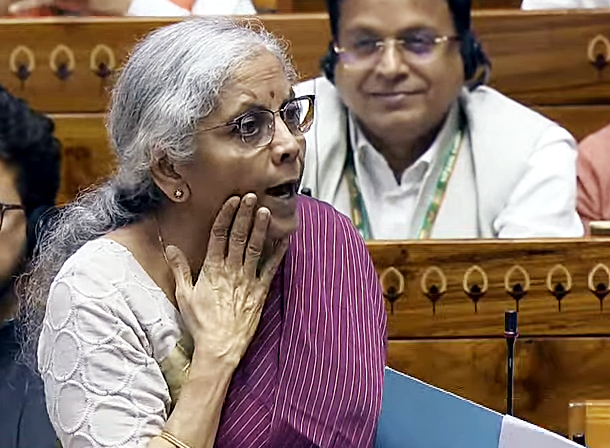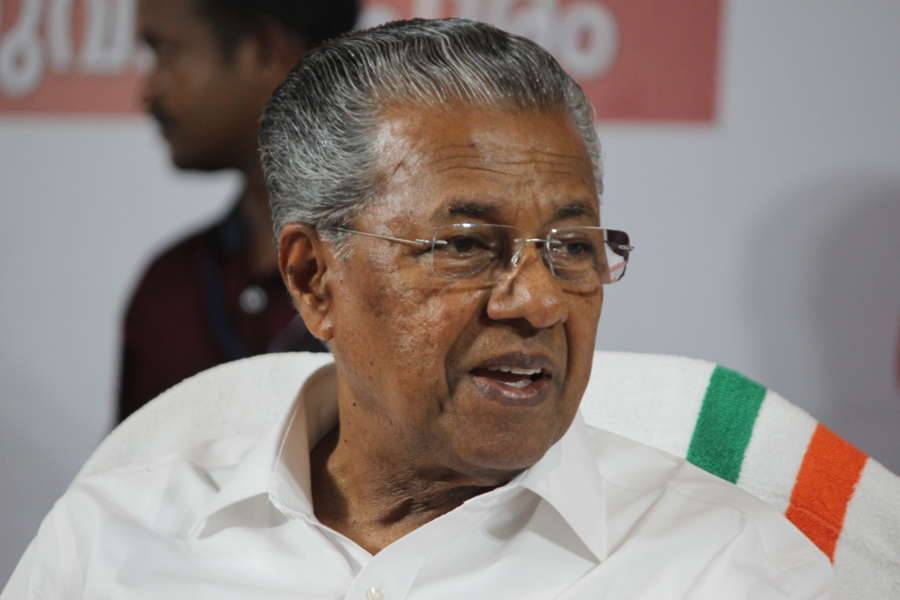The move by the Left government is seen as an effort to bring together the opposition-ruled states to strengthen their bargaining position…reports Asian Lite News
Kerala will host a conclave of five opposition-ruled states–four from South India and Punjab from the North–to discuss how to ensure their fiscal needs are addressed in the upcoming 16th Finance Commission, state Finance Minister K N Balagopal said on Thursday.
Besides the Left-ruled Kerala and AAP-governed Punjab, the states that will take part in the conclave are Tamil Nadu (DMK) and the Congress-ruled states of Karnataka and Telangana.
The move by the Left government is seen as an effort to bring together the opposition-ruled states to strengthen their bargaining position with the BJP-ruled Centre. Last year, the state had filed a suit in the Supreme Court against the Centre for imposing limits on its borrowing capacity.
Balagopal said that the conclave, which will be inaugurated by Kerala Chief Minister Pinarayi Vijayan on September 12, aims to ‘protect and strengthen’ the cooperative and fiscal federalism of the country.
Besides himself, Telangana Deputy Chief Minister and Finance Minister Bhatti Vikramarka Mallu, Karnataka Revenue Minister Krishna Byre Gowda, Punjab Finance Minister Harpal Singh Cheema, Tamil Nadu Finance Minister Thangam Thennarasu and Leader of the Opposition in the Kerala Assembly V D Satheesan will also take part in the conclave, Balagopal said.
Additionally, officials including finance secretaries of all the five states and several subject matter-related experts, like former Economic Advisor to the Central Government Arvind Subramanian, will also attend, the minister said.
He further said the conclave was being hosted by Kerala at a time fiscal federalism in the country was under challenge to a great extent.
“The main objective of the conference is to conceptualise the developmental and financial issues being faced by the states and present them before the 16th Finance Commission.
“A healthy Centre-State relationship requires fiscal stability of the states,” Balagopal said.
The minister contended that the Union government was taking a completely different stand by adopting “unfair methods of distribution of funds” to the states.
He also contended that a huge amount of revenue collected by the Centre from the states as cess and surcharge is not put in the divisive pool and therefore, the states do not get a share of that amount which is to the tune of several lakhs of crores of rupees.
In 2011-12, the share of cess and surcharge in Central government revenue was 9.4 per cent and by 2022-23, it had gone up to 22.8 per cent, he said. As a result, the states get only 29.6 per cent of the Centre’s revenue as against the recommendation of 41 per cent by the 15th Finance Commission, Balagopal contended. The minister also alleged that the discriminatory approach of the Centre also exists in the matter of borrowing rights of the states. He further said that the state should get the tax share that it is eligible for and there should be a timely increase in grants to local bodies.
Kerala is also eligible for special additional assistance due to its emphasis on welfare activities, he said. “Various other states are also facing this kind of financial discrimination. All these things will be part of the discussion in the conclave,” he said.

FM denies ‘friction’ in Centre-State ties over GST
Union Finance Minister Nirmala Sitharaman on Thursday denied any “friction” in the ties between the Centre and States over Goods and Services Tax and emphasised that the federal structure in this economic reform should be respected.
Simplifying and easing compliance on the tax payers received top priority rather than raising revenue during all consultative meetings on the union Budget, she said.
“Revenue is the last consideration with which every budget meeting happens. You may think that I am not telling the truth. The hard truth I would like to put before you. Yes, we like to raise revenue. During several consultations including those with Prime Minister Narendra Modi, revenue raising came last. But, simplifying, easing and compliance of taxpayers came first,” Sitharaman said.
Addressing a meeting on “The Finance Minister’s Insight: Path Forward” held under the aegis of the Revenue Bar Association here, she said the average Goods and Services Tax (GST) rate decreased to 12.2 per cent as of 2023, which was much below the revenue neutral rate (RNR), originally suggested at 15.3 per cent.
“We did see how much of effort happened at ground level to bring one nation-one taxation,” she said. On a charge in certain quarters on one of the biggest economic reforms in India, Sitharaman said “I completely deny that there’s a lot of friction in GST relationship with states…The Centre is not extracting revenue from states.”
The federal structure in the GST framework has to be respected so that both the Centre and States could work together to promote developmental activities besides widen the tax base, she said. “That’s the spirit with which we are working,” the Finance Minister stressed.
The spirit of revenue generation for both Centre and states should be to see how evasion could be avoided or targeted, how this should be addressed, and compliance ensured by making people think it is better and easier to comply than to evade, she said.
Finance Ministers representing various states attending the GST council meeting spoke on how to facilitate greater simplification, greater rationalisation and revenue generation. “So, for those who all want to believe that discordant notes guide finance ministers’ meeting, I would like to say that’s the place where the least politics works,” she said.
ALSO READ: Modi’s Wayanad Visit Brings Hopes As Kerala Seeks Rs 2,000 Cr Aid

Leave a Reply